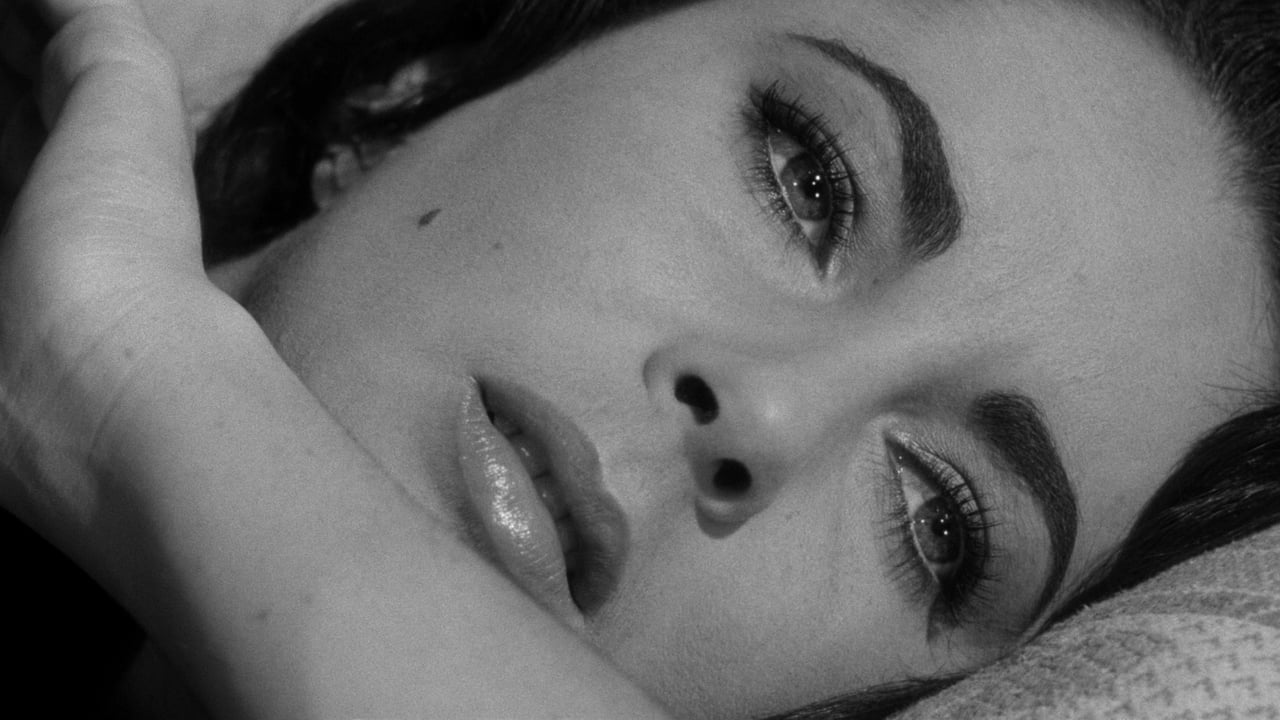Borgarkeri
A bit overrated, but still an amazing film
Tyreece Hulme
One of the best movies of the year! Incredible from the beginning to the end.
Aneesa Wardle
The story, direction, characters, and writing/dialogue is akin to taking a tranquilizer shot to the neck, but everything else was so well done.
Michelle Ridley
The movie is wonderful and true, an act of love in all its contradictions and complexity
SimonJack
One can't fault the performances by the entire cast in "Suddenly, Last Summer." Elizabeth Taylor, Katherine Hepburn, Montgomery Clift, Albert Dekker, Mercedes McCambridge and Gary Raymond handle their roles very well. Taylor and Hepburn are superb. The direction and technical aspects of this film are excellent as well. What then is relegates this movie to only six stars. Two things – the heavy, stage-driven script and dialog are taxing for a movie. At times, it seems as though the drama is overdone in big measures. And that relates to the second debit – the story itself. The initial mystery of the plot helps keep one interested for a while, but the dark background leaves a sour taste for the story. In short, it's not entertaining, and there's not sufficient intrigue to overcome its debits. This is a movie about a character whom we never see because he died the previous year. Everyone loved Sebastian, so we hear repeatedly in the film. But the truth was that he disdained people and only used them for his selfish ends. He was a spoiled rich kid who lived off his parents' wealth. He was a manipulator and user of people – including his mother and cousin Catherine (played by Taylor) to lure boys and young men for his homosexual pleasures. The film touches on still more depravity, including a possible incestuous relationship between son and mother. Hepburn's Mrs. Venable shows signs of and makes remarks that hint at such an incestuous infatuation with her son. The film has other references to unstable relationships, depravity and mental imbalance. As I said, it's not an enjoyable or entertaining movie to watch. Some reviewers lament the movie industry code (the Hays Code and office were self-imposed by the movie industry), that it doesn't allow Sebastian's homosexuality to be discussed openly. Well, the year of the film is 1937, and everything I've read about the mid-20th century tells me that this was not a subject discussed openly in society. It was hush- hush when I was growing up in the 1940s and 1950s. So, with the Hollywood self-imposed code, this film actually portrays a story as it was more likely to happen in real life. Indeed, much of Hepburn's Mrs. Venable character is built around the "unspeakable" subject, just as such. The film is based on a one-act play by Tennessee Williams, and he and Gore Vidal revised the original, adding many scenes, roles and subplots. Apparently, the play, which ran off-Broadway initially in 1958, made direct references to homosexuality. The theater and films have always pushed the envelope on what is acceptable to discuss and show openly according to the mores of the time. In so doing, they may break ground and sometimes create works of art. But when they are about stories of the past, they often fail to portray the past accurately. By superimposing a current culture on a past time, the film industry takes away the ability of modern audiences to understand or learn something about that culture of the past. So, we lose something in the end and may wind up with a skewered notion of a particular time in history. Perhaps this type of story of hedonism, depravity and overt self- indulgence does best in a one-act play on the stage. But feature films of such dysfunctional families are few and far between.
SnoopyStyle
It's 1937. Dr. Cukrowicz (Montgomery Clift) is frustrated by primitive facilities at Lions View State Asylum. Wealthy widow Mrs. Violet Venable (Katharine Hepburn) wants Cukrowicz to do a lobotomy on her niece Catherine Holly (Elizabeth Taylor). Violet lost her beloved son Sebastian during an European vacation in which Catherine is supposedly driven mad. Cukrowicz goes to interview Catherine who is confined with the nuns. She can't remember the incident which killed Sebastian. Violet is dangling a $1 million for the hospital to get Cukrowicz to do the operation. Catherine's mother and brother reveals that Sebastian left them $100k but Violet won't release it until her mother commits her to the asylum.Elizabeth Taylor is overacting a bit in the melodramatic way that people back then expected from the mentally disturbed. It's too much big acting. It's more compelling for her to be calm and sane as Violet maneuvers against her. Even in the flashbacks, she is overacting way too much. It's also probably more compelling for Catherine to be played by a weaker personality. She needs to be the underdog and overwhelmed by Violet's scheming. Also Cukrowicz needs to be the doctor who wants to lobotomize anybody and everybody. Montgomery Clift is also playing dumb badly. I guess back in the day, people would be that clueless about that subject matter but it's very annoying to have him be THIS clueless. While I understand why the homosexuality is written out, I don't understand why the gay bashing turns into cannibalism. Why are they eating him? Is this some kind of metaphor? The overacting and the changes hit me all wrong. It's really annoying to have the characters dance so much around the subject without actually saying it.
TxMike
I have been watching movies since the early 1950s, and the title "Suddenly, Last Summer" has bounced around my brain a number of times, but until I watched it yesterday on the "Movies!" channel I had no idea what it was all about or who was in it. It is set in 1937 New Orleans for some reason, but nothing of that city is shown and it was likely filmed in a studio somewhere. As it begins we learn that a young doctor has perfected the technique of performing partial brain lobotomies as a way to calm otherwise crazy people, where conventional treatments do not work.Now along comes a rich older woman who wants to hire the doctor to do the procedure on her 20-something niece, she is convinced that the young woman desperately needs this. Remarkably the girl's mother seems anxious to go along with it, perhaps because of the large sum of money she stands to gain.All of this very distasteful because as soon as we meet the young woman, as the doctor also discovers quickly, there really isn't anything wrong with her. So what is this "lobotomy" all about? That is the real mystery here. Elizabeth Taylor, looking beautiful in her mid-20s, is the young woman Catherine Holly. Her rich aunt is Katharine Hepburn as Mrs. Violet Venable. The young doctor is Montgomery Clift as Dr. Cukrowicz. Even though I was already familiar with all the actors, I had not seen much of their work in movies. It was a pleasure to see all three of them. The acting is fine but some of the 1950s melodrama gets a bit much, especially when the characters are talking in circles while carefully avoiding discussing the actual issue at hand. SPOILERS: Ms Venable just wanted to shut Katherine up to protect her poet son Sebastian who died "suddenly, last summer", while on a trip to Spain with Katherine. The official cause was heart attack, but when pressed to remember we see a reenactment, Sebastian was a homosexual and his mother didn't want that to be generally known. He would spend his time at the beach attracting young men and in a strange finish to his life he was chased and then the young men tore at his flesh.
jarrodmcdonald-1
Elizabeth Taylor gives a fine performance in a story taken from one of Tennessee Williams' more contrived plays. Revised significantly for the Hollywood film, subplots and additional characters are added, and references to Sebastian being a homosexual are made less explicit. The cannibalism of Sebastian is still referenced, but of course, not directly shown. The story draws heavily from the author's own life, as his sister Rose had undergone a lobotomy in the 1930s; and Williams himself was gay. Williams had also begun psychoanalysis in the mid-to-late 1950s, and that is very much reflected in the scenes with Miss Taylor's character and her doctor, played by Montgomery Clift.

